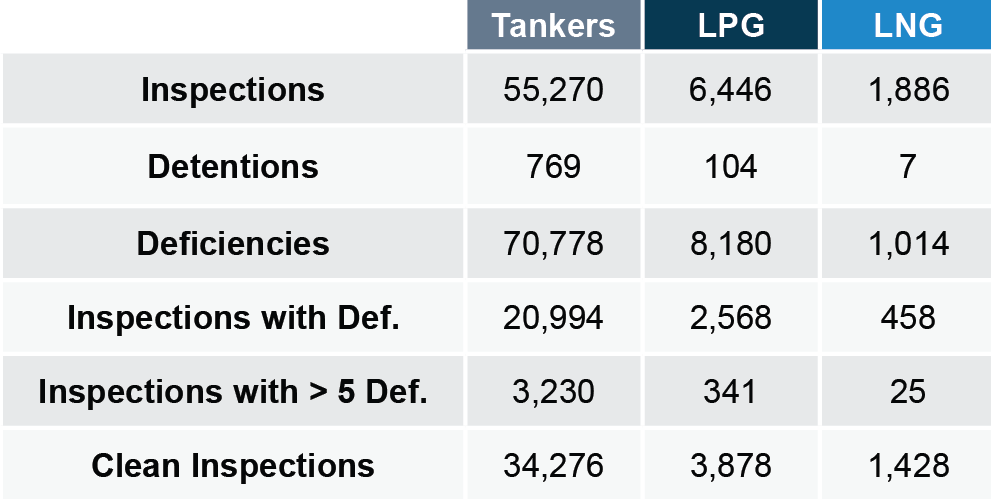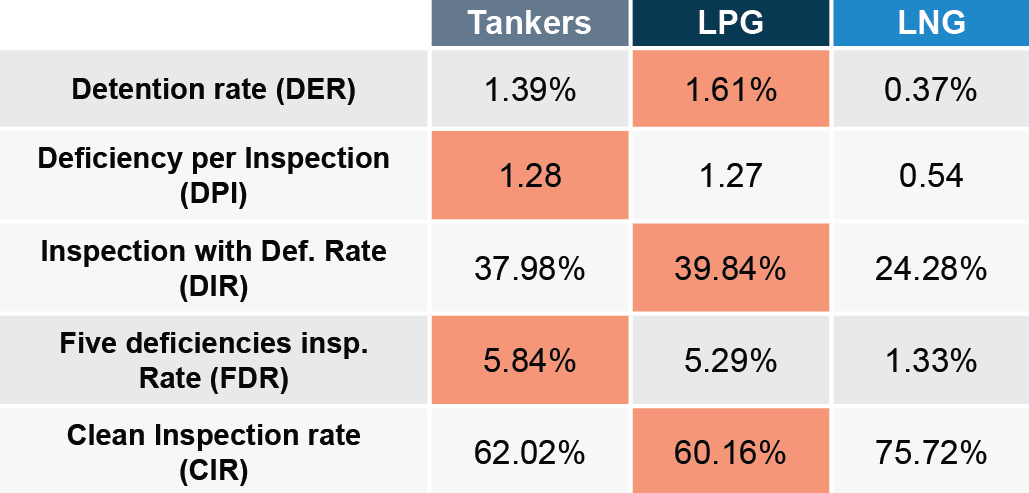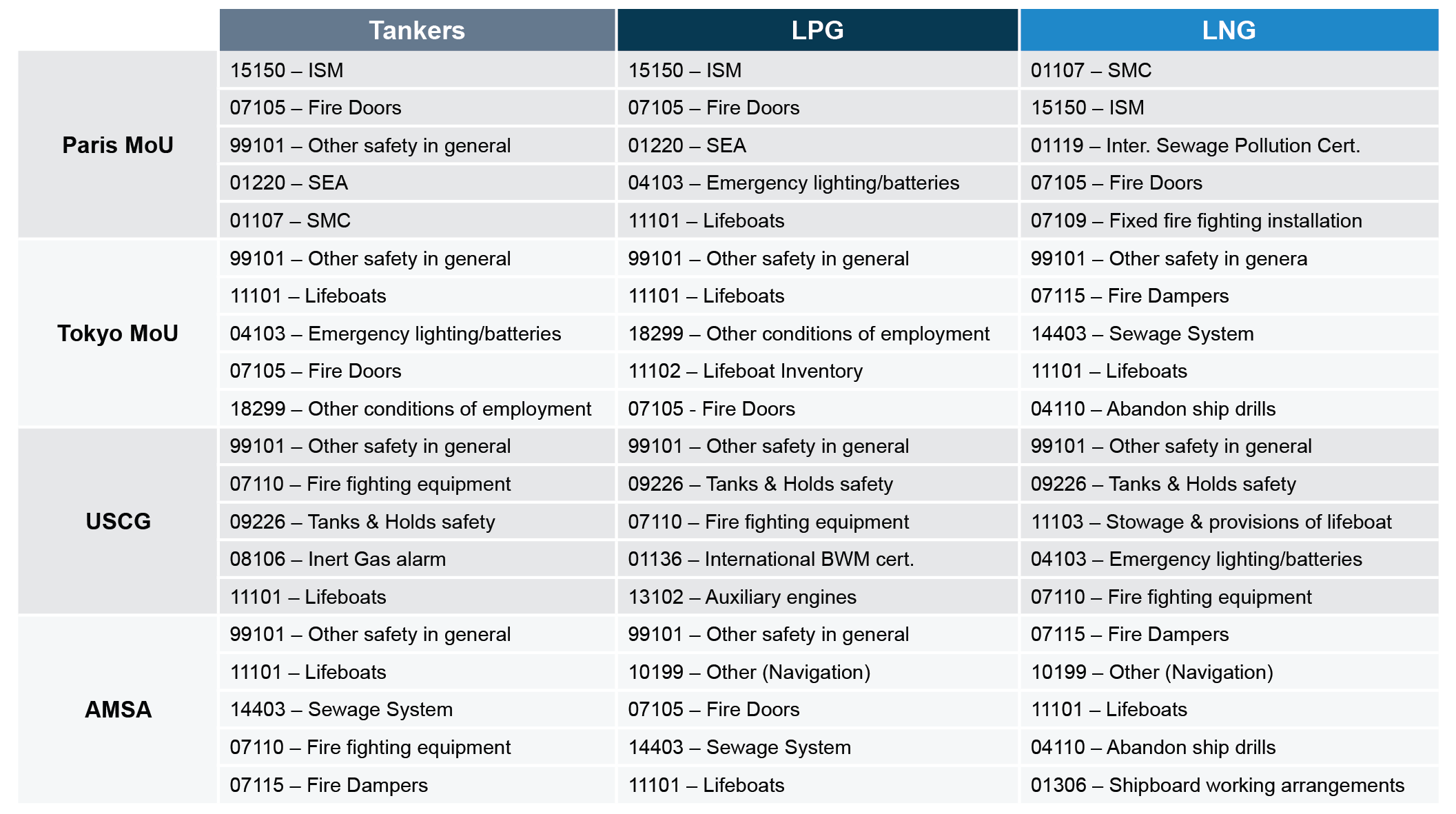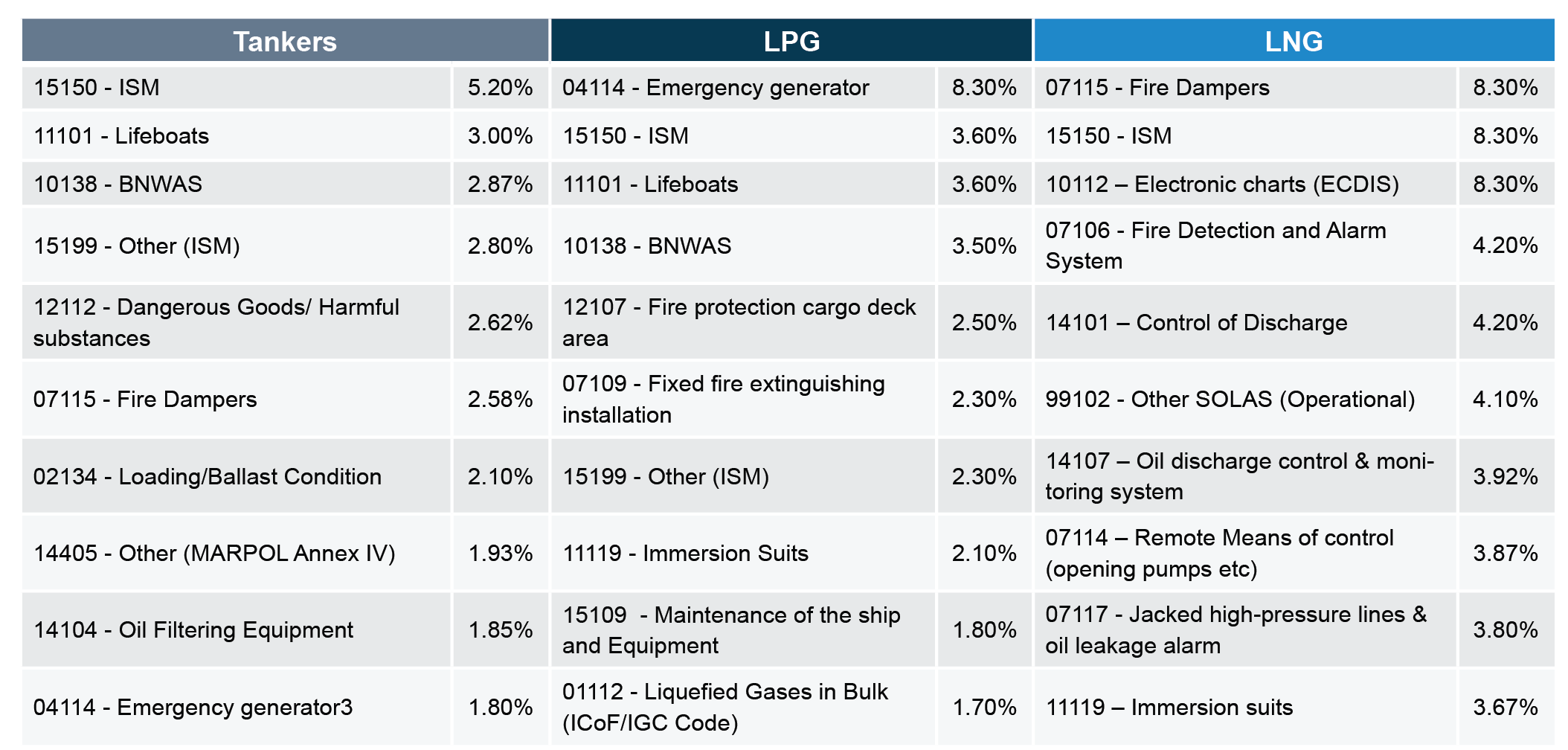Comparison of Tankers’ PSC Analytics (2016-2020)
Carriage of oil / gas / fuel or other liquified products is the “blood” of global economy. Tankers, the ships dedicated to transfer such cargoes, are mainly divided in three segments:
All Tankers: Carrying liquified products, excluding LPG/LNG Carriers
LPG Carriers: Carrying liquefied gas (byproduct derived while extracting crude petroleum)
LNG Carriers: Carrying Liquified Natural Gas
AMSA Inspections Data 2020 – Capesize

PSC KPIs

KPIs and Age Group

Top 5 deficiency codes per PSC MoU

Most common Deficiency areas

Most common detainable deficiency codes

Highlights
- Tankers demonstrate an excellent PSC performance compared to other segments for a number of reasons including, but not limited to, additional IMO/IACS regulation, self-regulation and Best Management Practices employed, a high standard vetting inspection regime and better crewing.
- To take it to the extreme LNG have the best performance out of the Tankers and the LPG segment while LPG and Tankers have are more or less on the same performance range.
- The general trend that is evident in all fleet segments is also present here : The ‘younger’ the ship the better the PSC performance compared to “older” ships, with first focus area being maintenance and overall structural condition issues.
- Out of the specific deficiency codes analysed for the last 5 years in all tanker types and in all MoU there are some specific codes repeated. 11101 – Lifeboats and 99101 – Other safety in general are two of the codes that appear in top 5 of all PSC MoUs.
- In respect of detainable deficiencies Cargo issues and ISM issues are the 2 main concerns for tankers. It is understood that Fire fighting operations on tankers (specially LNG and LPG) are complicated and demanding and provide PSCOs a wide area for findings. On the other hand ISM is mostly related to the overall PSC Performance. Every detainable item usually is connected to additional Company’s actions and verification of SMS implementation (with additional audits) through the code 15150-ISM and action code 17 (prior departure) or 18 (within 3 months).
About RISK4SEA
RISK4SEA is an online platform to provide PSC performance transparency to the market by analysing PSC Data. The platform is providing KPI, Demographics, Detentions Analytics, reports, Benchmarks and Insights for 23 ship type groups in an advanced analysis of the last 5 years aiming to assist stakeholders to PREPARE for forthcoming PSC inspections, ANALYSE PSC performance to identify strengths & weaknesses and BENCHMARK fleets against competition and the industry. Learn more at www.risk4sea.com
